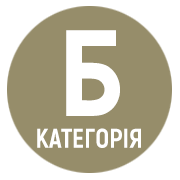LANGUAGE METAMORPHOSES AS REPRESENTATIONS OF SUBJECTIVITY. UKRAINE. DAIRY OF WAR
DOI:
https://doi.org/10.32782/upj/2023-1-5Keywords:
psychoanalysis, war, language, speech, unconscious, trauma, analysand, containingAbstract
The war launched by Russia in Ukraine in February 2024 became one of the most significant humanitarian disasters and had a huge impact on the mental state of every Ukrainian. This article describes the dynamics of mental processes of Ukrainians during the ongoing war, from its first days to today. These materials include descriptions of language observations of people who "came" into the "office" wherever it was (it could be a bed or a kitchen or a shelter) for individual meetings, and descriptions of the dynamics of large, medium, and small reflection groups and personal analysis of the author. And also - the style and method of work used by psychoanalysts and psychotherapists during the ongoing war and the dynamics of the population demands. The article shows the evolution of the unfolding of the psychic, presented through language, from the moment of "fight", "run", "freeze" in the first month of the war, from a place where there is no speech, no reflection, there is only the ineffable totality of the Real, to the bodily manifestation of pain, and in the rest – to the actual discourse of language/speech, where subjectivity appears. In addition, the article examines the phenomenon of the majority of analyses Ukrainians changing their language from Russian to Ukrainian. Based on Oleksandr Potebny’s reasoning that a change of language is not a change of clothes, that is, it is not an external factor, and Jacques Lacan’s statement that the subject is born in language, the author puts forward the hypothesis of a "return to the language font", which, in her opinion, caused this phenomenon.
References
Benveniste, E. (1971). Subjectivity in Language. In M.E. Meek (Ed.). Problems in General Linguistics, 223–230. Coral Gables: FL: University of Miami Press.
Danieli, Y. (1988). International Handbook of Multigenerational Legacies of Trauma.
Davoine, F., & Gaudillière, J.M. (2004). History beyond trauma. Other Press, LLC.
DeAngelis, T. (2019). The legacy of trauma. An emerging line of research is exploring how historical and cultural traumas affect survivors’ children for generations to come. American Psychological Association, 50(2).
Freud, S. (2003). The uncanny (1919). The standard edition of the complete psychological works of Sigmund Freud, 17, 1917–1919.
Kristeva, J. (1980). Pouvoirs de l’horreur (The powers of horror). Paris: Seuil.
Lacan, J. (1977). The Function and Field of Speech and Language in Psychoanalysis. Trans. Alan Sheridan. Écrits: A Selection. London: Tavistock; New York: W.W. Nortion & Co.
Lacan, J. (2011). The seminar of Jacques Lacan: Book X: Anxiety: 1962–1963.
Phillips, A. (2001). Poetry and Psychoanalysis. In Essays on Literature and Psychoanalysis, Basic Books, New York.
Spehn, M.K. & Reder, L.M. (2000). The unconscious feeling of knowing: a commentary on Koriat’s paper. Conscious Cognition, June, 9, 193–202. http://doi.org/10.1006/ccog.2000.0435
Velykodna, M., Dorozhkin, V., Nalyvaiko, N., Yevlanova, E. & Lunov, V. (2022). Life and death of psychoanalytic societies – Lessons from history and new prospects for unions: Conference Report, Kyiv, Ukraine. Psychodynamic Practice, 3. http://doi.org/10.1080/14753634.2022.2064351
Даніелі, Я., Майдан, І. (2023). Травматична спадщина поколінь. Психосоматична медицина та загальна практика, 8(1). http://doi.org/10.26766/pmgp.v8i1.409
Жадан, С. (2022). Промова на врученні премії миру німецьких книгарів 2022. https://librarycre.wordpress.com
Наливайко, Н. (2023). Психоаналіз в Україні: Історія. Сьогодення. Майбутнє. Київ, Академія.
Потебня, А.А. (1892). Мысль и язык. Харьков.



